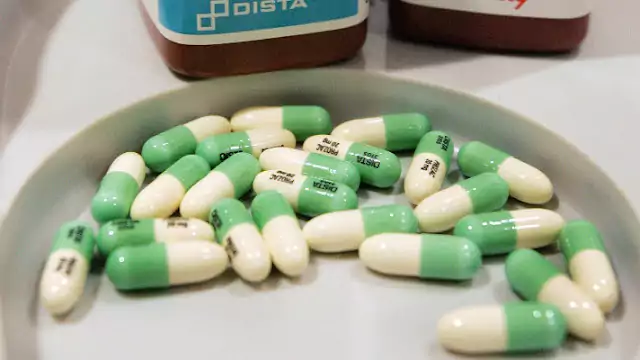Formerly, anti-depressants were used to cure depression. New evidence presented by medical researchers now suggests that the key to curing depression lies not just in taking expensive little pills but in unlocking the healing process within.
The Onset of Depression
Most people have experienced some form of depression in their lifetime. Occasional sadness, feelings of low self esteem and sporadic moodiness are all part of the human condition. Sometimes, however, those feelings will spiral, multiply and spill over into a way of life. Since depression is different for everyone, researchers are uncertain what the triggers may be. Sometimes life circumstances such as the death of a loved one or a divorce can bring an onset of depression. For others it may be hormonal, such as women experiencing postpartum depression after giving birth. Whatever the cause, one thing is for certain. When feelings of sadness, anxiety, irritability or grief are interfering with daily life, it is time to seek help for depression.
The Symptoms of Depression
Symptoms of depression can be complex and subtle, and are often easily missed by others. The National Institute of Mental Health (NIMH) states that symptoms of depression include feelings of sadness, anxiety, insomnia, excessive fatigue, guilt, irritability and loss of interest in life’s activities. It is important to remember that not all people experience all of the symptoms of depression, and these feelings may be more severe in some people than others. For this reason depression can be categorized as major, dysthmic, postpartum, psychotic and seasonal affective disorder. Each category of depression is different and should be treated accordingly.
Anti Depressants in the News
For decades, anti-depressants have been a first choice for doctors in the battle against depression. Unfortunately, researchers are now disputing the efficacy of this choice. According to a recent article published in the Journal of the American Medical Association, researchers have found that there is little evidence to support the claims of the pharmaceutical industry in relation to the effectiveness of these expensive little pills. In short, studies indicate anti depressants can be no better than a placebo for certain types of depression.
The Dilemma of the Anti Depressant
While it is clear that anti-depressants play an important role in the treatment of major depression, it is also clear that is not truly effective for those with mild to moderate forms of depression. It may have been possible for doctors in past decades to continue prescribing this medication and relying on the placebo effect, but that will no longer be an effective course of treatment now that recent research has come to light. Once people know they are being given nothing more than a pricey sugar pill, it stands to reason that it may no longer work. But there is a sort of comfort in these findings, and hope as well. Just imagine, if people are able to recover from depression with the use of a placebo, would it not be possible to harness that power into a more positive path to healing, with less side effects? Rather than despair at having anti depressants taken away, there is relief and understanding that the key to healing lies within.
The Path of Healing for Depression
Anybody who has ever dealt with a depressive episode knows that it takes more than just “snapping out of it” to put a halt to the cycle. The question remains, however, what is the path of healing for this tricky and sometimes unexplainable disease? For many it would seem that healing occurs with not just one but a combination of treatments. With a major depressive disorder, anti-depressants may still be the primary course of treatment. For others, participating in psychotherapy and altering certain lifestyle habits can have considerable benefits in the treatment of depression.
Lifestyle Remedies for Depression
It is important to remember that making small changes can significantly alter the course of this disease. Depression subsides slowly, and changing lifestyle habits helps minimize feelings of despair and helplessness. Try making one change at a time, starting with engaging in mild to moderate exercise. Resist the urge to isolate and engage in social activities. Also, changing negative thought patterns can be an extremely important aspect of dealing with this disease. An onslaught of negative thoughts can impair a person’s sense of well being, so listen carefully to any inner monologue. Careful observation of thought patterns is the first step to making changes to those patterns. Remember, making one small step at a time is an important part of healing this disease.
Depression Warnings
Depression can be a debilitating and life threatening illness. Do not hesitate to seek medical treatment when experiencing symptoms of depression or thoughts of suicide. Always consult a medical professional prior to engaging in a new exercise regime, especially for those who are overweight or have not exercised in a long time.
